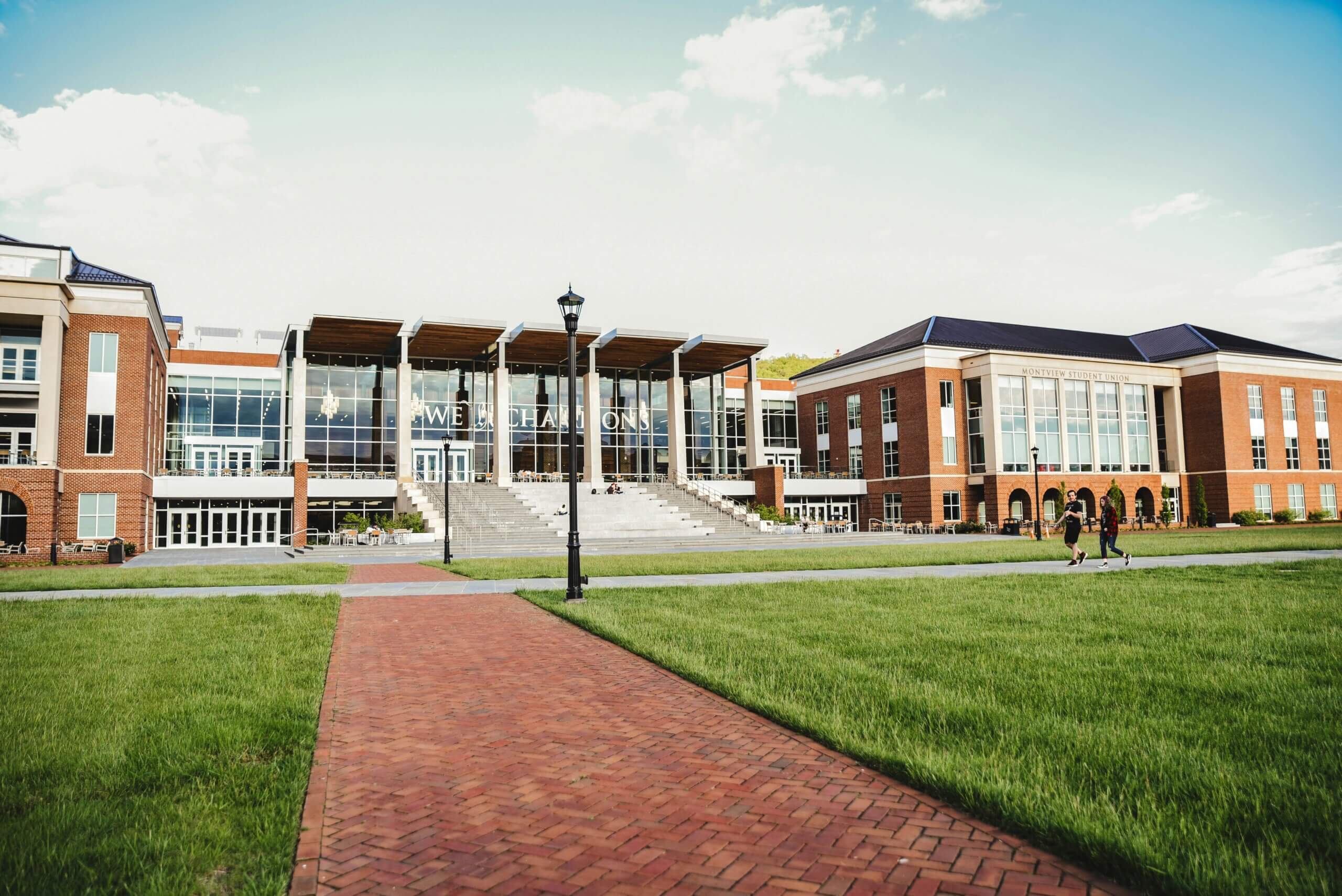Value of Higher Education
How Much Does the First Job Matter?
Our Insights from Strada’s “Talent Disrupted” Report On February 21, Strada and Burning Glass released a new study, titled “Talent […]
Solutions
Helping higher education create transformational change across campus.
See AllFor Universities
Admissions & Enrollment
Maximize enrollment by increasing yield & reducing melt
Experiential Learning
Scale High-Impact Practices for student success
PathwayU
Redefine how students pick majors & careers with PathwayU
Student Success
Increase retention & persistence to graduation
Career Services
Improve career readiness & career navigation
Industry Partners
Connect universities & corporations for project-based learning
Alumni & Advancement
Grow alumni engagement & the philanthropy pipeline
Success Stories
Read how schools leverage PeopleGrove in their communities.
See All Stories
University of Kansas
How University of Kansas scales career services to their 375,000 alumni

Michigan State University
How Michigan State ensures academic and career success for students

University of Miami
How the Toppel Career Center joined forces with alumni to provide career guidance to students
Resources
Explore blogs, webinars, whitepapers, and more resources to enhance how students and alumni connect.
See All ResourcesBlog
Read posts about how PeopleGrove meets higher education’s ever-changing needs at every turn.
Events
In-person or online, join PeopleGrove for unmatched experiences, conferences, webinars, and more.
Research Library
A collection of stories, events, research, and best practices to transform learners’ experiences.
Super Mentors Book
The ordinary person’s guide to asking extraordinary people for help.
Innovators Community
Learn from thought leaders and practitioners in both higher education and workforce development.
About
PeopleGrove is made for learners by learners. Everyone here makes it possible for students and alumni to succeed.
Learn MoreCareers
Be a part of the next big thing for learners everywhere and start making an impact. Join us today!
Contact
Want to get in touch? Have a question? We’d love to hear from you. Connect with us.
Value of Higher Education
Our Insights from Strada’s “Talent Disrupted” Report On February 21, Strada and Burning Glass released a new study, titled “Talent […]


On February 21, Strada and Burning Glass released a new study, titled “Talent Disrupted,” on post-graduate outcomes for college students. The media headlines followed quickly:
As these headlines suggest, the report’s star statistic deals with how many graduates end up in jobs that require a college degree. Underemployed refers to those in positions that do not require a degree. But unlike a first-destination study, the data in the Strada study is tracked over a 1, 5, and 10 year horizon.
Conclusion: the first job out of college matters! If a student is underemployed to start their career, they're likely to be underemployed later in their career and, thus, earn less.
There's a lot to break down in this report, and the data has some considerable nuance. But there are a few key insights that resonated with us.
The report finds that one's major has a lot to do with whether or not someone is underemployed. Majors that require a good deal of quantitative reasoning tend to have fewer graduates facing underemployment than those programs with less quantitative reasoning. Engineering, Accounting, Computer Science, and other programs with a heavy mathematics foundation see more than 60%+ of their graduates in college-level employment. On the opposite side…”round up the usual suspects.” Social sciences, humanities, arts, and even business degrees without a heavy quant focus (e.g. marketing) see graduates with high underemployment rates. Major selection even has a larger impact than "institution selectivity" in the study — though that factor does play a role in underemployment.
This is an interesting one given the increased importance of "soft/human/success/power" skills in the market, particularly as it relates to AI. In fact, the majority of the eight NACE Career Readiness Competencies all fall into that human skills category. One would think that the majors the report found led to more underemployment (i.e. liberal arts that are less quantitative based) help develop those skills. Georgetown's Center for Education and the Workforce even found that graduates of liberal arts institutions tend to catch up and even surpass the NPV of their peers over the long run. Perhaps the Strada/Burning Glass report simply doesn’t look far enough into the future.
That being said, the report's conclusion that the first job matters tremendously to future earnings and career trajectories rings true. This underemployment issue for the less quantitative majors is yet another example of the articulation gap. Students in these degree programs may simply not understand how they can speak to the crucial competencies they are building in their program and through their coursework. We need to be thinking about ways to help liberal arts majors comprehend and demonstrate their skills in a work setting beyond the quantitative assessments. Which leads us to…
The report found that internships matter a great deal when it comes to underemployment: "The odds of underemployment for graduates who had at least one internship are 48.5 percent lower than those who had no internships, and the benefits associated with completing an internship are relatively strong across degree fields." If anyone in higher education still had any doubt about the value of the high-impact practice that is an internship, this should erase that.
But as we have written about before, not every student has the ability to get an internship. A separate Strada report found that less than half of seniors reported having an internship by the time they graduated. For students who lack access to internships for a myriad of reasons, experiential learning projects can serve the same purpose — filling the articulation gap, building a portfolio of experience, prototyping a career, cultivating a network, etc.
Importantly, the report calls out that these internships should be paid. Paid internships are often more structured and rigorous than unpaid internships and are more highly valued in the market. In one study, NACE researchers found that students with unpaid internships actually received the same number of job offers as those with no internship at all. Not only is paying individuals for their work the right thing to do, it’s also more beneficial to the student in achieving their ultimate goal.
If you take a look at the full report, you'll find that the word "network" is used only 6 times. Four times in the text, once in the citations, and once as part of a proper noun. Each mention seems to be a bit of an afterthought.
For example, the report dives into a school's selectivity as a huge factor as to whether or not someone is likely to be underemployed. The more selective the school, the less likely one will be underemployed. Why?
"More selective colleges have many advantages relative to inclusive colleges. They typically have more resources to support students through high-quality career services, for example, as well as alumni networks to help students build social capital through mentorships and less formal “loose connections” that can be beneficial in job searches."
Intentionally or not, this quote seems to imply that the power of a school's network is correlated with the amount of resources that school has. Sure an institution needs to invest in the network's success to make it powerful. But that investment should come in the form of a strategic plan in building social capital for students and alumni. Recognizing there's a social capital gap and being dedicated to fixing it comes first. Once there, a school can invest in the tools to close that gap.
Every institution should make this commitment. Not just those with a $30+ billion endowment. In fact, for an inclusive college this investment is the #1 thing they could do at scale to support their students and improve their outcomes.
This report has rightfully gotten a lot of attention in the national media. In an age where the value of higher education is being challenged from all sides, any data that supports that narrative is going to grab headlines. But this data also provides a clear solution to driving the post-graduation outcomes that students invest in. By helping students find their purpose, understand how they can turn that into a career, provide them access to experiential learning opportunities like internships, and help them access the career-launching power of the university network; higher education can prove to students and their families that a degree still carries the promise of the social mobility offered through a meaningful career.
Browse more research and insights.

Career Services
For nontraditional students pursuing higher education while balancing work, family, or both, support can be key to student success. University […]
4 min read

Alumni & Advancement
In 2022, PeopleGrove released the first-of-its-kind impact report. Its goal was to understand how student-alumni engagement communities – which PeopleGrove […]
4 min read

Career Services
How Science and Deep Insight are Shaping the Future of Career Services The Promise of Informed Choices Imagine knowing […]
3 min read